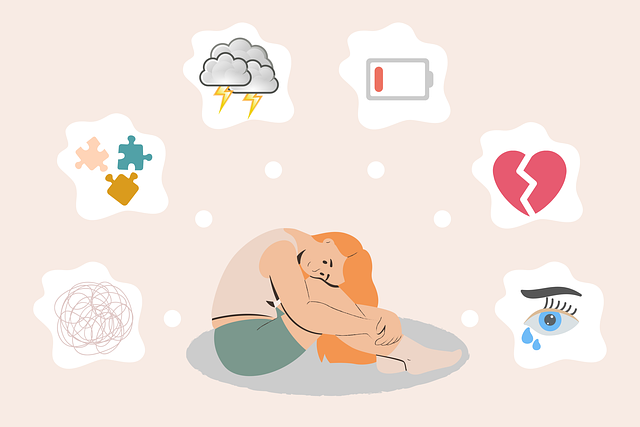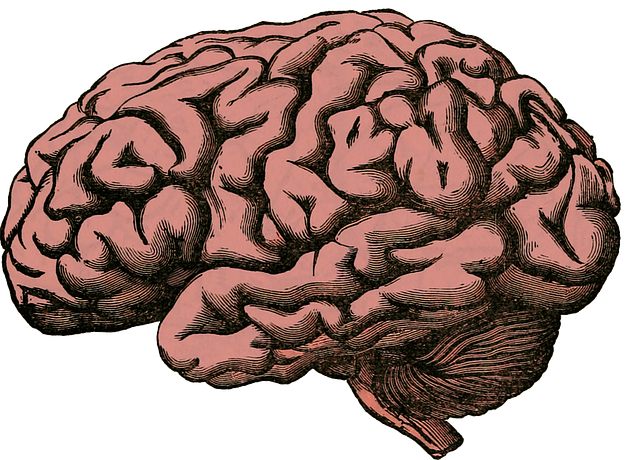Workplace stress significantly impacts mental health, with demanding deadlines, heavy workloads, and complex relationships contributing to anxiety and depression. Recognizing these factors as professional life aspects is crucial. Early intervention through self-assessment tools and therapy for workplace issues and job stress is essential for employee well-being. These tools enable proactive management of mental health, foster cultural competency, and offer insights into effective interventions like cognitive-behavioral therapy. Integrating self-assessments into wellness programs normalizes conversations about stress, reducing stigma, and ensures accessible therapy within organizations.
Mental wellness self-assessment tools play a pivotal role in addressing workplace stress, a significant contributor to mental health issues. This article explores the development of such tools, focusing on their ability to facilitate early intervention and improve employee support programs. We delve into understanding the impact of job stress, designing effective assessments, and integrating them seamlessly into corporate wellness strategies. By utilizing these tools, organizations can foster healthier work environments and provide accessible therapy for workplace issues.
- Understanding Workplace Stress and Its Impact on Mental Health
- The Role of Self-Assessment Tools in Early Intervention
- Designing Effective Mental Wellness Self-Assessment Tools
- Integrating Self-Assessments into Employee Support Programs
Understanding Workplace Stress and Its Impact on Mental Health

Workplace stress has become an increasingly recognized factor impacting mental health and wellness. The modern workplace presents a unique set of challenges that can contribute to significant levels of stress, anxiety, and even depression among employees. From demanding deadlines and heavy workloads to complex relationships with colleagues and managers, these factors often go unnoticed as inherent aspects of professional life. However, the consequences can be severe if left unaddressed. High-stress levels at work have been linked to a range of mental health issues, affecting not just individuals but also organizational productivity and morale.
Therapy for workplace issues and job stress has gained prominence as an essential aspect of employee well-being. Implementing effective communication strategies and community outreach programs can play a pivotal role in managing and preventing these problems. By fostering open dialogue about mental health challenges, organizations can create supportive environments where employees feel comfortable seeking assistance. Additionally, focusing on depression prevention through early intervention and stress management techniques empowers individuals to maintain resilience in the face of work-related pressures.
The Role of Self-Assessment Tools in Early Intervention

Self-assessment tools play a pivotal role in early intervention strategies for mental wellness, especially when it comes to addressing workplace issues and job stress. These tools empower individuals to take an active role in their mental health by providing a clear understanding of their current emotional state and potential areas of concern. By utilizing self-assessment questionnaires or apps, employees can identify signs of stress, anxiety, or burnout early on, enabling proactive measures before these issues escalate into more severe problems.
In the context of therapy for workplace issues and job stress, self-assessment tools can serve as a valuable first step in crisis intervention guidance. They help healthcare providers gain insights into an individual’s daily experiences and emotional responses, which are crucial elements in developing tailored burnout prevention strategies for healthcare providers. Furthermore, these assessments can contribute to improving cultural competency among healthcare providers by encouraging self-reflection on personal biases and fostering more empathetic connections with diverse patient populations.
Designing Effective Mental Wellness Self-Assessment Tools

Integrating Self-Assessments into Employee Support Programs

Integrating self-assessment tools into employee support programs is a strategic move to address workplace issues and job stress proactively. These assessments can serve as powerful gateways to therapy for employees struggling with mental health challenges. By incorporating regular self-checks, organizations can foster an environment that encourages open conversations about mental wellness. This approach normalizes discussions around anxiety, depression, and other common work-related stressors, reducing the stigma often associated with seeking help.
One effective strategy is to offer accessible online platforms or apps featuring various self-assessment tools, including those for stress management, emotional awareness, and mindfulness meditation. These digital resources can be easily integrated into company wellness programs, ensuring employees have convenient access to mental health support. Moreover, developing internal training sessions or workshops focused on interpreting assessment results can empower HR professionals and managers to identify at-risk individuals and provide them with appropriate resources, whether it’s through counseling services, public awareness campaigns development, or even producing a mental wellness podcast series to educate and engage employees.
Mental wellness self-assessment tools play a pivotal role in addressing workplace stress and its detrimental effects on mental health. By integrating these tools into employee support programs, organizations can facilitate early intervention, fostering a culture of proactive mental well-being. Effective self-assessments not only help individuals recognize their emotional states but also guide them towards appropriate therapy for workplace issues and job stress. This comprehensive approach ensures that employees receive the necessary support to thrive in their professional environments.









